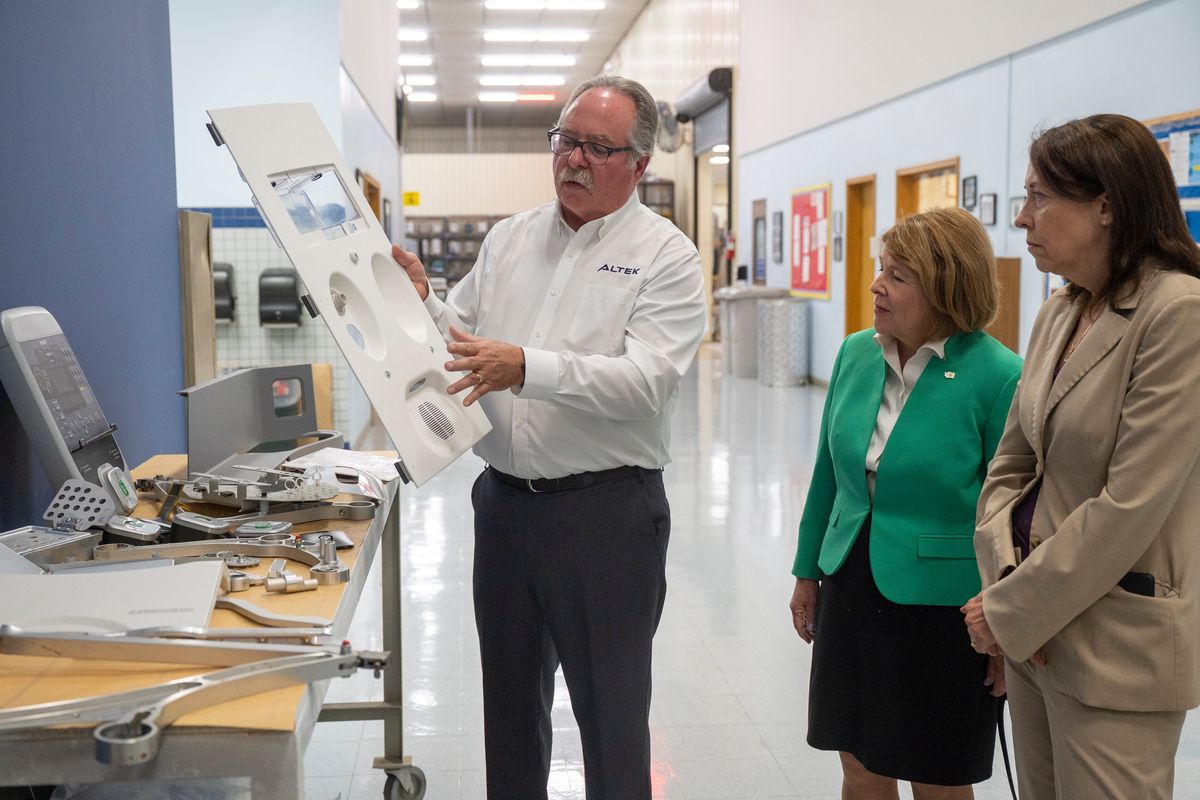Cantwell visits Liberty Lake to tout $280 billion tech bill

In the small city of Liberty Lake, Altek Manufacturing’s big facility churns out metal and plastic parts.
Rectangular gray parts to cover up satellite antennas. Shiny silver parts for laser tattoo removal equipment. Long, thin parts destined for airplane cabin panels.
All of that work represents years of technological advancement and innovation, Sen. Maria Cantwell said Tuesday during a news conference on Altek’s factory floor.
A $280 billion bill passed by Congress last month will help ensure America remains a tech leader in the years to come, Cantwell said.
Cantwell visited Liberty Lake to tout the CHIPS and Science Act, a bipartisan effort to spur scientific advancement, create manufacturing jobs and build semiconductor chips within America’s borders.
Proponents of the bill, including Cantwell, argue government subsidies are necessary if U.S. tech manufacturing is going to compete with Asia and Europe. Detractors, including Rep. Cathy McMorris Rodgers, have said it violates free market principles.
Semiconductor chips, used in cars, computers and thousands of electronics, are the bill’s headliner. Congress set aside nearly $53 billion to subsidize chip domestic chip production, in hopes of reducing America’s reliance on foreign suppliers.
The legislation also makes billions available for technological research and science, technology, engineering and math education, but precisely where the money will go isn’t clear. Companies and universities will compete for the funding.
Karlene Hoo, dean of Gonzaga University’s school of engineering and applied sciences, said the money could help incentivize research in emerging technologies.
For instance, aircraft construction could change dramatically in the coming years. It’s possible planes could make use of new plastics and three-dimensional printing techniques.
The CHIPS and Science Act could help pay for research centers and fellowships that will attract more students to the aerospace field, Hoo said. Those students will help design the planes of the future.
Lisa Brown, director of the Washington state Department of Commerce, said Eastern Washington is well-positioned to benefit from the CHIPS and Science Act. She said many aerospace companies and support businesses, such as Altek Manufacturing, are already in the region.
“People think aerospace, they think Puget Sound,” Brown said. “But we have the cluster here.”